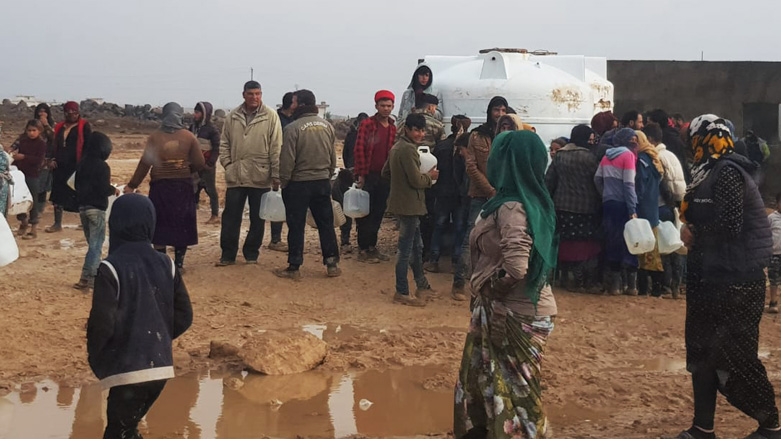Save the Children warns about increasing drought in northeastern Syria and Iraq

ERBIL (Kurdistan 24) – The lives of Iraqi and Syrian children are presently “hanging in the balance” as drought and low water levels affect major rivers in their countries and deny millions access to water, Save the Children said on Monday ahead of the 2021 UN Climate Change Conference.
According to that aid organization, the water level of the Euphrates River has decreased as it flows into Syria from Turkey. Many in Iraq and Syria rely on the Euphrates for water supplies and farming. In addition to this, many people in Iraq, including the Kurdistan Region, rely on the Tigris and Diyala rivers too, which Save the Children notes are drying up as a result of extreme heat and low rainfall.
“Compounding this is the regular interruption and long shutdowns of the Alouk water station in North East Syria, a critical water source for millions of people,” the report added. “While the water station is currently active, since January 2021, the station has seen 89 days of no pumping whatsoever, and 142 days functioning below half of its usual capacity.”
The report added that this has left parts of Hasakah “without access to piped water for two months and humanitarian agencies scrambling to use already limited resources to meet the needs of the city’s residents.”
The Alouk water station is located near the border town of Ras al-Ain (Serekaniye), which Turkey and its Syrian militia proxies captured in October 2019 during the Turkish military’s cross-border Operation Peace Spring.
Since then, Turkey-backed groups have regularly cut water supplies from the facility, affecting an estimated 500,000 people in Hasakah city and nearby communities.
“Before, at least we had what we needed; wheat for baking bread for our children. Now, we cannot water our lands any more, there is no rainfall,” Yousef, who lives in a village in Hasakeh’s countryside, told Save the Children.
“Our weather has changed completely. Drinking water has decreased. Employment rates are low. There are no jobs. This is what makes us suffer the most,” he added.
Due to the lack of water, there has also been an increase of over 56,000 recorded cases of acute diarrhea in northeast Syria and over 17,000 cases of leishmaniasis, a parasitic disease, since April 2021.
“While these diseases are more common in Syria’s hot summer months, the outbreaks in 2021 have been much higher because clean water for drinking and washing has been so limited,” Save the Children said.
“We urgently need more funding to respond to this crisis, to prioritize water, sanitation and hygiene and ensure that children have enough food to eat in the months ahead. We also desperately need to see more efforts to address and offset the impacts of water scarcity and climate change,” Sonia Khush, Director of Save the Children’s Syria Response Office, said.
Across northern Syria, the organization estimates that it has reached 800,000 people in need of emergency water, sanitation and hygiene (WASH) assistance since the COVID-19 pandemic began early last year.
The organization also said it has launched a new project in Iraq that aims to reach over 300,000 people “to increase their resilience in adopting to water scarcity through building capacity of local actors and strengthening of water systems.”
